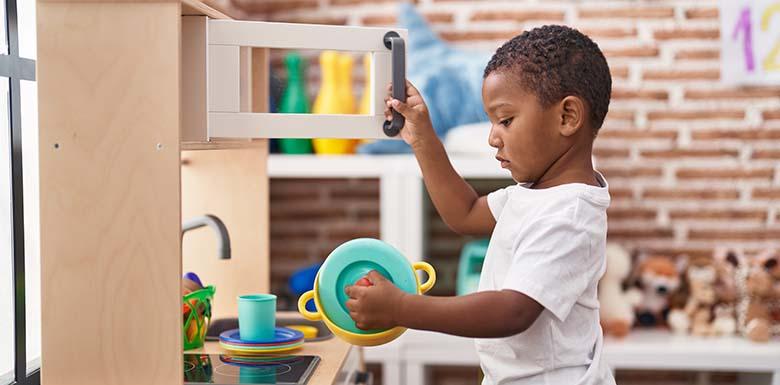When it comes to caring for our little ones, keeping them safe and healthy is always top of mind. One area that often flies under the radar but deserves our full attention is foodborne illness in daycares. With so many kiddos sharing meals and snacks, the risk of germs spreading can be higher than we’d like. In this blog, we’ll explore why food safety in daycare settings is crucial, what steps caregivers and parents can take to protect kids, and how staying informed can make all the difference in keeping those tiny tummies happy and healthy. Let’s dive in!
Table of Contents
- Understanding Common Foodborne Illnesses in Daycare Settings
- Key Practices for Preventing Contamination During Meal Times
- How to Train Daycare Staff on Food Safety and Hygiene
- Tips for Communicating with Parents About Foodborne Risks and Policies
- Wrapping Up
Understanding Common Foodborne Illnesses in Daycare Settings
In daycare environments, where little hands explore everything and sharing is part of learning, foodborne illnesses can spread swiftly if precautions aren’t in place. The most common culprits include Salmonella, E. coli, and Norovirus. These pathogens thrive on contaminated food or surfaces and can cause symptoms such as vomiting, diarrhea, fever, and stomach cramps. Given children’s developing immune systems, even a mild outbreak can lead to serious health complications or extended absences. Daycare providers must stay vigilant in monitoring food storage, preparation, and handling to minimize risks.
Understanding how these illnesses transmit in shared eating spaces is key to protection. Food left out too long, improper handwashing, or cross-contamination during meal prep are common triggers. Implementing strict hygiene policies can make a big difference, including:
- Regular handwashing routines for children and staff before meals
- Separating raw and cooked foods during meal prep
- Ensuring timely refrigeration to prevent bacterial growth
- Thorough cleaning of all eating areas and utensils
By fostering a culture of cleanliness and awareness, daycares not only prevent illnesses but also teach valuable hygiene habits that children carry with them beyond mealtime.
Key Practices for Preventing Contamination During Meal Times
Ensuring a safe mealtime environment for children in daycares involves strict attention to hygiene and careful handling of food. Staff should always wash their hands thoroughly before serving or preparing food, and encourage kids to do the same to minimize germ transfer. Surfaces and utensils must be sanitized regularly, especially after each use, to prevent cross-contamination. Using separate cutting boards for raw and cooked foods and storing perishable items at the correct temperatures are simple yet essential steps that protect little ones from harmful bacteria.
Another vital practice is teaching children about not sharing utensils, cups, or food items, which can easily spread germs. Caregivers should also keep an eye out for any allergic reactions or symptoms that might indicate a foodborne illness, acting swiftly if concerns arise. Implementing clear labeling of allergen-containing foods and using disposable gloves when handling ready-to-eat items shows a proactive approach to safeguarding young children’s health at every meal.
- Handwashing protocols for staff and children
- Regular sanitization of surfaces and utensils
- Proper food storage and temperature control
- Educational guidance on sharing and hygiene
- Allergen management with clear labeling
- Use of disposable gloves during food handling
How to Train Daycare Staff on Food Safety and Hygiene
Ensuring daycare staff are fully equipped with food safety knowledge starts with engaging and practical training sessions. Incorporate interactive demonstrations that showcase proper handwashing techniques, safe food handling, and correct cleaning procedures. Use visual aids like infographics and videos to reinforce key points, making it easier for staff to retain essential information. Regular refresher courses also play a vital role in maintaining high standards, so schedule periodic workshops that tackle common food safety concerns and introduce updated regulations.
To empower your team effectively, focus training on these core practices:
- Recognizing symptoms and prevention of cross-contamination.
- Proper storage temperatures and labeling for all food items.
- Safe preparation and serving protocols tailored to young children’s dietary needs.
- Implementing daily hygiene routines, including sanitizing toys and surfaces.
By adopting a clear, hands-on approach and emphasizing consistency, daycare staff can build confidence in protecting children from foodborne illnesses every single day.
Tips for Communicating with Parents About Foodborne Risks and Policies
Clear and compassionate communication is key when discussing foodborne illness risks with parents. Start by sharing factual information about the common sources of foodborne illnesses and the specific policies your daycare follows to mitigate these risks. Using simple language, avoid jargon to ensure everyone understands the message. Visual aids like infographics or quick videos can make complex data more relatable. Encourage parents to ask questions and actively listen to their concerns, which helps build trust and fosters a team approach to keeping children safe.
Creating a routine for updates can ease anxieties and demonstrate your commitment to transparency. Consider sending monthly newsletters or digital bulletins highlighting safety practices, recent food safety news, or reminders about symptom monitoring. Additionally, provide parents with actionable tips on proper food handling at home and when packing meals, such as storing perishables correctly or recognizing signs of spoilage. Remember, timely, honest, and respectful dialogue makes all the difference in nurturing confidence in your policies and protecting the well-being of every child.
Wrapping Up
Protecting our little ones from foodborne illnesses in daycares is a team effort—parents, caregivers, and centers all play a vital role in keeping kids safe and healthy. By staying informed about proper food handling, recognizing potential risks, and advocating for clear coverage policies, we can create an environment where children not only thrive but are protected from preventable illnesses. Remember, a little extra caution today goes a long way in ensuring happy, healthy tummies tomorrow! Thanks for reading, and here’s to raising strong, resilient kids together.






